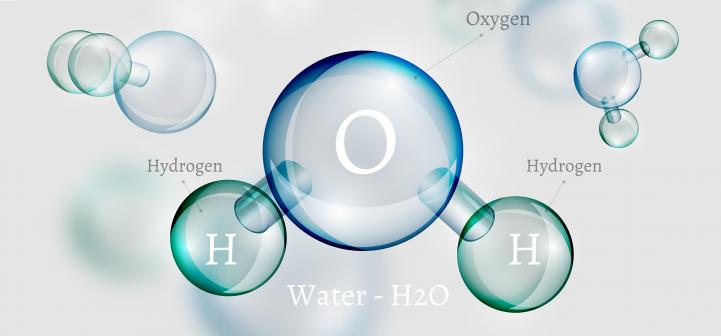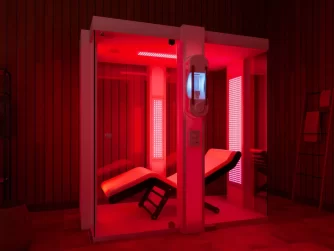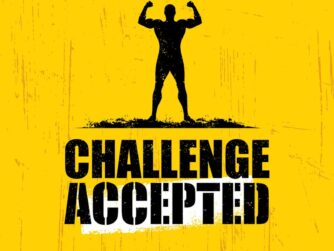As a personal trainer and nutritionist, I get asked a lot about hydration. But today’s blog isn’t about guilt-tripping you into drinking more water. It’s about understanding why we need it, and what actually happens after you take a sip. From the moment water touches your tongue to the second it reaches your cells, your body is putting it to work in amazing ways.
Think of this as your no-fluff, simple explanation of how water keeps us running.
First Things First: Water Isn’t Just “Good for You”—It’s Essential
Let’s clear this up: water isn’t optional. Your body is made up of around 60% water, and nearly every function you perform—from blinking to breathing to building muscle—requires it.
When you drink water, you’re not just quenching thirst. You’re giving your body the fuel it needs to:
- Regulate temperature
- Transport nutrients
- Flush out waste
- Lubricate joints
- Support digestion
- Power muscle contractions
- Maintain brain function
And that’s just scratching the surface.
What Happens in the Body When You Drink Water?
So what exactly goes on after you take a drink?
1. It Enters Through the Digestive System
Water first enters the stomach, where it’s absorbed quickly, often within five minutes. The small intestine then takes over, where the majority of the absorption happens. From there, it enters the bloodstream.
2. It Gets Delivered to Cells
Once in the bloodstream, water gets distributed to tissues and cells via your circulatory system. Think of it like Uber Eats for your organs. Every cell in your body needs water to function, and not just a little.
Your cells use water for:
- Energy production (converting food into usable energy requires water)
- Transporting nutrients
- Removing waste via cellular respiration
- Maintaining structure (your cells literally hold their shape because of water)
Without enough water, cells shrink, your metabolism slows down, and your body starts firing off warning signals.
How Water Molecules Work Inside the Body
Let’s keep this simple. A water molecule is made of two hydrogen atoms and one oxygen atom—H₂O. That combination is incredibly effective at bonding with other substances, which is why water is known as the universal solvent.
When you drink water, these molecules interact with minerals and electrolytes (like sodium, potassium, calcium, and magnesium). Your body uses this combo to:
- Keep fluid balance in and around cells
- Conduct nerve impulses
- Power muscle contractions
- Regulate blood pressure
Ever had a muscle cramp from dehydration? That’s your body screaming for a better water-mineral balance.
What About Minerals in Water?
Yes, minerals matter. Natural spring water, mineral water, and some filtered waters contain essential trace minerals. These help maintain electrolyte balance, support bone health, and even impact mood.
Distilled water, while clean, lacks these minerals, so if that’s your go-to, make sure you’re getting your minerals from food or supplements.
What Are the Natural Signs of Dehydration?
Your body has built-in alarms. Here are a few common ones:
- Dry mouth or lips
- Fatigue or sluggishness
- Headaches
- Dark yellow urine
- Dizziness or lightheadedness
- Muscle cramps
- Poor concentration or brain fog
One of the earliest signs of dehydration is just feeling a little “off.” Your performance, mood, and even hunger levels can shift when you’re not hydrated. Some people even confuse thirst for hunger.
Do We Have to Drink Just Water?
Technically, no. You can stay hydrated through:
- Herbal teas
- Fruit-infused water
- High-water-content foods (like cucumbers, watermelon, and celery)
- Milk or broth
However, plain water is still the best because it hydrates without added sugar, calories, or caffeine. Beverages like soda, energy drinks, and alcohol can actually dehydrate you by pulling water from your cells or increasing urination.
So yes, while coffee and tea contribute to hydration, nothing works as cleanly or efficiently as good ol’ H₂O.
Is Drinking Water an Acquired Taste?
Absolutely. If you’ve grown up drinking juice, soda, or sweet tea, water might feel bland at first. That’s normal. But just like any habit, your body and brain can adjust.
Tips to Make Water More Enjoyable:
- Add lemon, lime, or cucumber slices
- Try sparkling water for texture
- Use a motivational water bottle with time markers
- Chill it—cold water tends to taste more refreshing
- Start slow—add one extra glass per day and build from there
The more consistently you drink it, the more your body starts to crave it. And eventually, you’ll feel off without it.
Are There Downsides to Drinking Too Much Water?
Yes, but it’s rare. Overhydration or hyponatremia (diluting the sodium in your blood) typically only happens with extremely excessive water intake, especially during endurance events like marathons. For most people, drinking half your body weight in ounces per day is a safe and effective goal.
So, Why Should You Care?
Because staying hydrated isn’t just about quenching thirst—it’s about giving your body every opportunity to perform at its best. Whether you’re hitting the gym, chasing kids around, working late, or just trying to feel better in your own skin, water supports everything.
And the best part? It’s free (or close to it), available almost anywhere, and it doesn’t take a fancy gadget to use.
Final Thoughts
Water is the foundation of your health. Every organ, every cell, every process in your body relies on it. Understanding what happens when we drink it—from absorption to cellular function—helps us make better decisions about how we treat our bodies.
So next time someone says, “Drink more water,” remember—it’s not a command. It’s a gift.
And now you know why.







